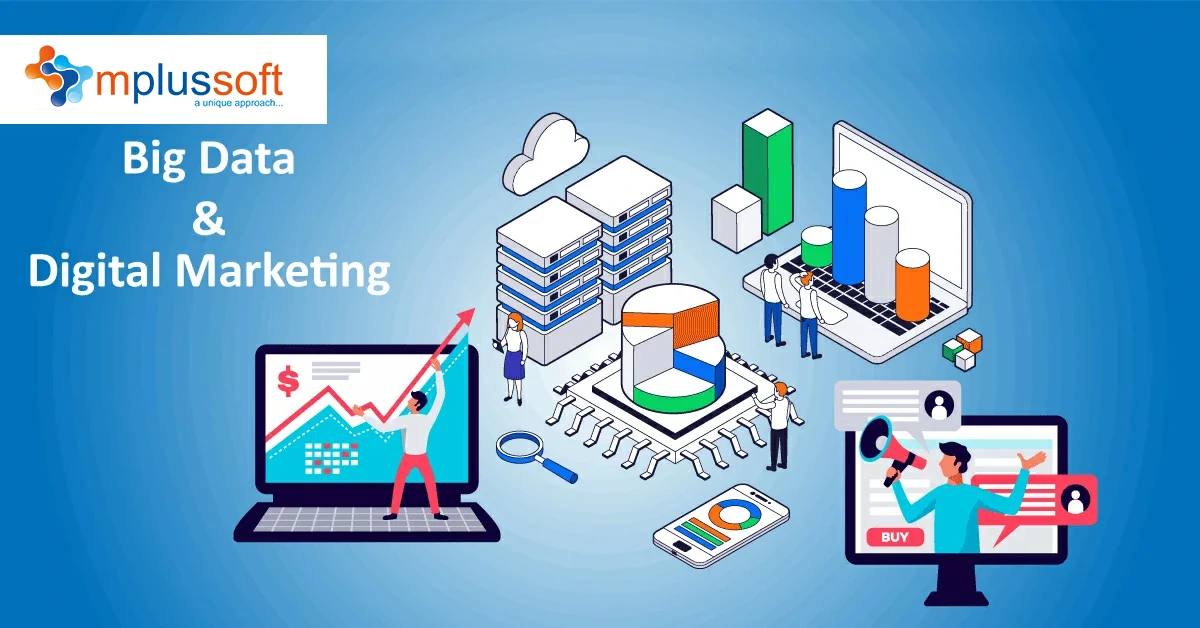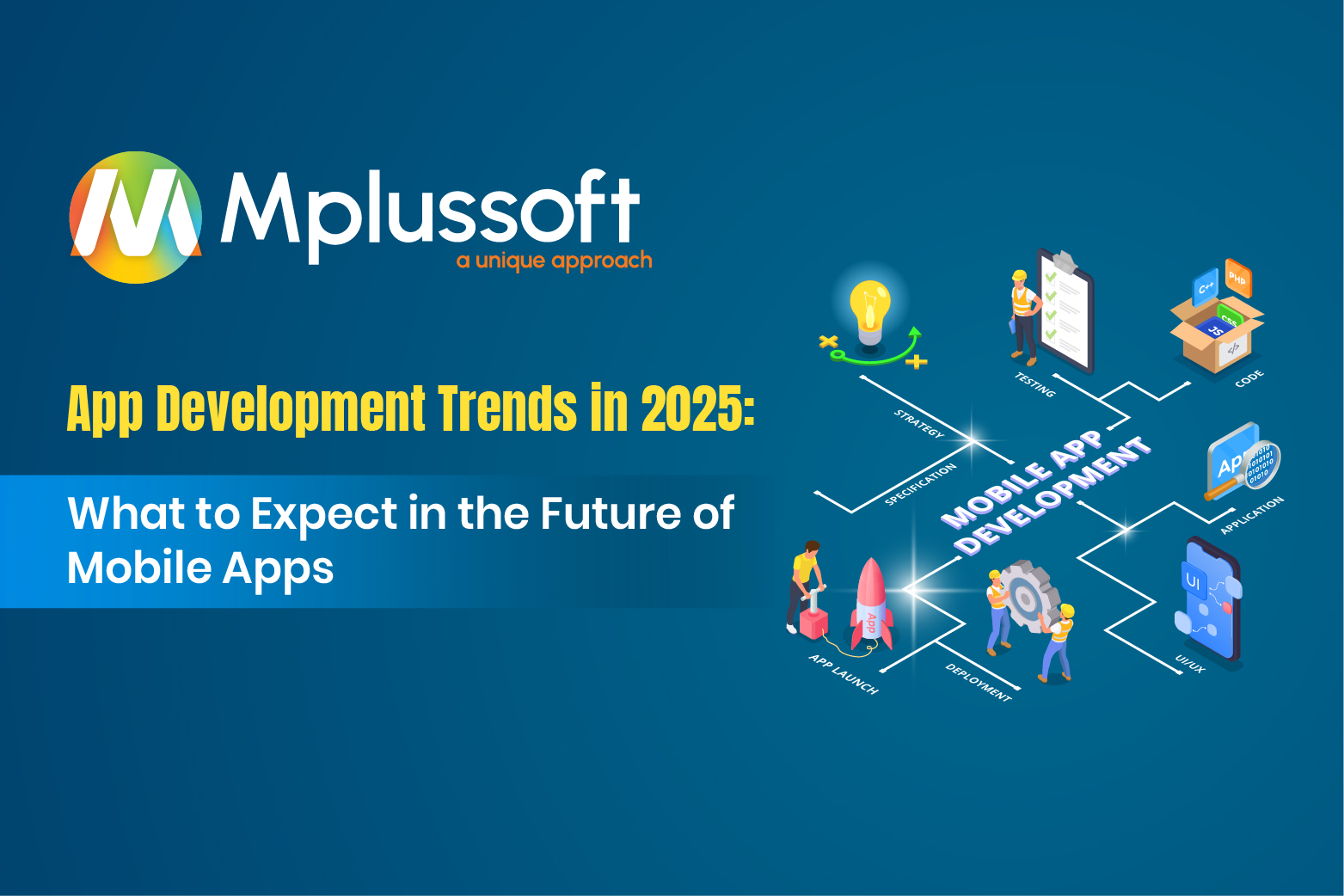Role of Big Data in Digital Marketing
 Role of Big Data in Digital Marketing
Role of Big Data in Digital Marketing
The role of Big data in digital marketing is very crucial. Every day, the amount of information communicated through online platforms is growing significantly. Marketers may evaluate every customer activity with the utilization of big data tools. Using big data in digital marketing can give a deep level of understanding to marketers. It also helps businesses in developing precise and innovative marketing strategies. As the world grows more digital, businesses must cope with massive amounts of data.
As we are living in the age of information and technologies, if they marketer/companies use accurately with a deep level analysis of their customer data definitely they can touch the pinnacle of access with a very short period of time.
Before we go into the issue, let's define Big Data.
What is Big data'
Big Data refers to large amounts of data that are too vast and complicated to store in conventional databases. Data has changed over the past decade, but now every sector generates enormous amounts of data every second. This data is used in every business area, including Healthcare, Ed-tech, E-Commerce, and Banking.
Big Data is defined by the five Vs: Volume, Velocity, Variety, Value, and Veracity.
Volume
Volume means a large amount of data. Organizations gather a huge amount of data from several sources, including Online search engines, e-commerce websites, financial websites, and surveys. Previously, storing this massive quantity of data would have been difficult, but new technologies have made it possible.
Velocity
Velocity means the speed at which data is being collected and stored. Because of the introduction of big data, statistics can be supplied faster than traditional methods using technologies such as 5G bands, IoT, and RFID chips (Radio Frequency Identification Tags)
Variety
Variety means the type/kind of data collected by various sources such as structured, semi-structured, and unstructured data. The diversity of data may include a response to ad campaigns, emails, mobile apps, social-media engagement, etc.
Value
It refers to the value of data collected. Profit isn't the only thing that adds value. It might be health or societal advantages. In short, it determines how much useful information is available in the data.
Veracity
Veracity means correctness, and reliability of the data. It is also used to define irregularities and instability in data. Sometimes the available data can occasionally become cluttered which leads to difficulty in management.
Here are a few of the factors why Big Data is essential in Digital Marketing
Customer insights
Personalized targeting
Uplifting the sales
Enhances the reach of a Marketing Campaign
Price Optimization
Budget Optimization
Customer insights
Marketers may gain a thorough understanding of their target customers by utilizing big data in digital marketing. Understanding your target audience is essential for businesses to maintain a competitive advantage in this era of technology.
Sentiment research allows a firm to gain greater consumer insights, which can aid marketers in key developments. "Sentiment Analysis" is a technique that examines data on how a targeted customer reacts to the ad campaigns run by the marketers. To do this, it uses text analytics and natural language processing. Sentimental Analysis is sometimes referred to as "Opinion Mining"also.
Once a marketer has a complete and precise picture of their target audience's behavior, they can plan how to leverage the current data and incorporate them into their new marketing campaign.
Personalized targeting
Today every marketer's main approach has become personalization. The toughest challenge for marketers is to engage customers at the appropriate time with the correct message. Marketers may use big data in digital marketing to build targeted and personalized marketing strategies.
Personalized targeting is the process of developing and distributing ads to individuals or groups of people based on data such as location, internet activity, cookies, and buying behavior. In other words, it is called One-to-One Marketing.
Uplifting the sales
By using big data analysis, Marketers can know the buying habits of customers such as what they buy, and how often they buy a particular item. And what mode of payment do they prefer' This information may be utilized to retarget customers, as well as to increase sales prospects through cross-selling and upselling. Also, big data stats will assist in making the appropriate offer to the customer at the appropriate moment, resulting in higher sales.
Enhances the reach of a Marketing Campaign
When combined with market research and popular trends, big data may be quite effective, but it is also vital for marketers to look at other sources, such as third-party statistics. Combining big data with data obtained from third-party sources such as interviews, reviews, and opinions will enhance the reach of the marketing campaign as well.
Price Optimization
Companies may use big data analysis to determine better pricing options for their services. It can also help marketers to determine the pricing of the products based on the demand in the market. Price optimization can help you boost your sales and profits.
When using big data to determine the pricing of the products, marketers should keep in mind that they may already have a lot of useless data on hand, such as broad economic indicators and consumption patterns. Here the aim is to extract useful information from this data. Furthermore, big data enables firms to use AI to automate the pricing of the products, which will save time and effort.
Budget Optimization
One of the most difficult tasks for digital marketers is budget optimization. Customers don't make purchases directly. They utilize social media platforms for reviews and consume a lot of digital material for research and comparison before making a buying choice.
Marketers use a variety of methods to engage their audience, including personalized ads, newsletters, social media campaigns, affiliate programs, and paid reviews.
By using these marketing techniques they must analyze which ad campaign is contributing the most to conversion and ROI (Return on investment)
The attribution model is a way of analyzing the customer's conversion funnel. It determines how effective the channel is that brought the customer to your site.
Marketers may use the Attribution model to figure out what motivates customers to buy, it is also used to find which channel is contributing the most in the process of conversion. As a result, you can focus on channels with high conversion rates.
Benefits Of Using Big Data in Digital Marketing
Understanding the behavior of the target audience.
Engaging the audience with personalized ads.
Analyzing the buying habits of the target audience and then pitching them the right product.
Improving the reach of marketing by using third-party statistics.
Boost sales using price optimization techniques.
Knowing which strategy is giving the highest conversion and return on investment.
 Role of Big Data in Digital Marketing
Role of Big Data in Digital Marketing
The role of Big data in digital marketing is very crucial. Every day, the amount of information communicated through online platforms is growing significantly. Marketers may evaluate every customer activity with the utilization of big data tools. Using big data in digital marketing can give a deep level of understanding to marketers. It also helps businesses in developing precise and innovative marketing strategies. As the world grows more digital, businesses must cope with massive amounts of data.
As we are living in the age of information and technologies, if they marketer/companies use accurately with a deep level analysis of their customer data definitely they can touch the pinnacle of access with a very short period of time.
Before we go into the issue, let's define Big Data.
What is Big data?
Big Data refers to large amounts of data that are too vast and complicated to store in conventional databases. Data has changed over the past decade, but now every sector generates enormous amounts of data every second. This data is used in every business area, including Healthcare, Ed-tech, E-Commerce, and Banking.
Big Data is defined by the five Vs: Volume, Velocity, Variety, Value, and Veracity.
Volume
Volume means a large amount of data. Organizations gather a huge amount of data from several sources, including Online search engines, e-commerce websites, financial websites, and surveys. Previously, storing this massive quantity of data would have been difficult, but new technologies have made it possible.
Velocity
Velocity means the speed at which data is being collected and stored. Because of the introduction of big data, statistics can be supplied faster than traditional methods using technologies such as 5G bands, IoT, and RFID chips (Radio Frequency Identification Tags)
Variety
Variety means the type/kind of data collected by various sources such as structured, semi-structured, and unstructured data. The diversity of data may include a response to ad campaigns, emails, mobile apps, social-media engagement, etc.
Value
It refers to the value of data collected. Profit isn't the only thing that adds value. It might be health or societal advantages. In short, it determines how much useful information is available in the data.
Veracity
Veracity means correctness, and reliability of the data. It is also used to define irregularities and instability in data. Sometimes the available data can occasionally become cluttered which leads to difficulty in management.
Here are a few of the factors why Big Data is essential in Digital Marketing
Customer insights
Personalized targeting
Uplifting the sales
Enhances the reach of a Marketing Campaign
Price Optimization
Budget Optimization
Customer insights
Marketers may gain a thorough understanding of their target customers by utilizing big data in digital marketing. Understanding your target audience is essential for businesses to maintain a competitive advantage in this era of technology.
Sentiment research allows a firm to gain greater consumer insights, which can aid marketers in key developments. "Sentiment Analysis" is a technique that examines data on how a targeted customer reacts to the ad campaigns run by the marketers. To do this, it uses text analytics and natural language processing. Sentimental Analysis is sometimes referred to as "Opinion Mining"also.
Once a marketer has a complete and precise picture of their target audience's behavior, they can plan how to leverage the current data and incorporate them into their new marketing campaign.
Personalized targeting
Today every marketer's main approach has become personalization. The toughest challenge for marketers is to engage customers at the appropriate time with the correct message. Marketers may use big data in digital marketing to build targeted and personalized marketing strategies.
Personalized targeting is the process of developing and distributing ads to individuals or groups of people based on data such as location, internet activity, cookies, and buying behavior. In other words, it is called One-to-One Marketing.
Uplifting the sales
By using big data analysis, Marketers can know the buying habits of customers such as what they buy, and how often they buy a particular item. And what mode of payment do they prefer? This information may be utilized to retarget customers, as well as to increase sales prospects through cross-selling and upselling. Also, big data stats will assist in making the appropriate offer to the customer at the appropriate moment, resulting in higher sales.
Enhances the reach of a Marketing Campaign
When combined with market research and popular trends, big data may be quite effective, but it is also vital for marketers to look at other sources, such as third-party statistics. Combining big data with data obtained from third-party sources such as interviews, reviews, and opinions will enhance the reach of the marketing campaign as well.
Price Optimization
Companies may use big data analysis to determine better pricing options for their services. It can also help marketers to determine the pricing of the products based on the demand in the market. Price optimization can help you boost your sales and profits.
When using big data to determine the pricing of the products, marketers should keep in mind that they may already have a lot of useless data on hand, such as broad economic indicators and consumption patterns. Here the aim is to extract useful information from this data. Furthermore, big data enables firms to use AI to automate the pricing of the products, which will save time and effort.
Budget Optimization
One of the most difficult tasks for digital marketers is budget optimization. Customers don't make purchases directly. They utilize social media platforms for reviews and consume a lot of digital material for research and comparison before making a buying choice.
Marketers use a variety of methods to engage their audience, including personalized ads, newsletters, social media campaigns, affiliate programs, and paid reviews.
By using these marketing techniques they must analyze which ad campaign is contributing the most to conversion and ROI (Return on investment)
The attribution model is a way of analyzing the customer's conversion funnel. It determines how effective the channel is that brought the customer to your site.
Marketers may use the Attribution model to figure out what motivates customers to buy, it is also used to find which channel is contributing the most in the process of conversion. As a result, you can focus on channels with high conversion rates.
Benefits Of Using Big Data in Digital Marketing
Understanding the behavior of the target audience.
Engaging the audience with personalized ads.
Analyzing the buying habits of the target audience and then pitching them the right product.
Improving the reach of marketing by using third-party statistics.
Boost sales using price optimization techniques.
Knowing which strategy is giving the highest conversion and return on investment.
 Role of Big Data in Digital Marketing
Role of Big Data in Digital Marketing
The role of Big data in digital marketing is very crucial. Every day, the amount of information communicated through online platforms is growing significantly. Marketers may evaluate every customer activity with the utilization of big data tools. Using big data in digital marketing can give a deep level of understanding to marketers. It also helps businesses in developing precise and innovative marketing strategies. As the world grows more digital, businesses must cope with massive amounts of data.
As we are living in the age of information and technologies, if they marketer/companies use accurately with a deep level analysis of their customer data definitely they can touch the pinnacle of access with a very short period of time.
Before we go into the issue, let's define Big Data.
What is Big data?
Big Data refers to large amounts of data that are too vast and complicated to store in conventional databases. Data has changed over the past decade, but now every sector generates enormous amounts of data every second. This data is used in every business area, including Healthcare, Ed-tech, E-Commerce, and Banking.
Big Data is defined by the five Vs: Volume, Velocity, Variety, Value, and Veracity.
Volume
Volume means a large amount of data. Organizations gather a huge amount of data from several sources, including Online search engines, e-commerce websites, financial websites, and surveys. Previously, storing this massive quantity of data would have been difficult, but new technologies have made it possible.
Velocity
Velocity means the speed at which data is being collected and stored. Because of the introduction of big data, statistics can be supplied faster than traditional methods using technologies such as 5G bands, IoT, and RFID chips (Radio Frequency Identification Tags)
Variety
Variety means the type/kind of data collected by various sources such as structured, semi-structured, and unstructured data. The diversity of data may include a response to ad campaigns, emails, mobile apps, social-media engagement, etc.
Value
It refers to the value of data collected. Profit isn't the only thing that adds value. It might be health or societal advantages. In short, it determines how much useful information is available in the data.
Veracity
Veracity means correctness, and reliability of the data. It is also used to define irregularities and instability in data. Sometimes the available data can occasionally become cluttered which leads to difficulty in management.
Here are a few of the factors why Big Data is essential in Digital Marketing
Customer insights
Personalized targeting
Uplifting the sales
Enhances the reach of a Marketing Campaign
Price Optimization
Budget Optimization
Customer insights
Marketers may gain a thorough understanding of their target customers by utilizing big data in digital marketing. Understanding your target audience is essential for businesses to maintain a competitive advantage in this era of technology.
Sentiment research allows a firm to gain greater consumer insights, which can aid marketers in key developments. "Sentiment Analysis" is a technique that examines data on how a targeted customer reacts to the ad campaigns run by the marketers. To do this, it uses text analytics and natural language processing. Sentimental Analysis is sometimes referred to as "Opinion Mining"also.
Once a marketer has a complete and precise picture of their target audience's behavior, they can plan how to leverage the current data and incorporate them into their new marketing campaign.
Personalized targeting
Today every marketer's main approach has become personalization. The toughest challenge for marketers is to engage customers at the appropriate time with the correct message. Marketers may use big data in digital marketing to build targeted and personalized marketing strategies.
Personalized targeting is the process of developing and distributing ads to individuals or groups of people based on data such as location, internet activity, cookies, and buying behavior. In other words, it is called One-to-One Marketing.
Uplifting the sales
By using big data analysis, Marketers can know the buying habits of customers such as what they buy, and how often they buy a particular item. And what mode of payment do they prefer? This information may be utilized to retarget customers, as well as to increase sales prospects through cross-selling and upselling. Also, big data stats will assist in making the appropriate offer to the customer at the appropriate moment, resulting in higher sales.
Enhances the reach of a Marketing Campaign
When combined with market research and popular trends, big data may be quite effective, but it is also vital for marketers to look at other sources, such as third-party statistics. Combining big data with data obtained from third-party sources such as interviews, reviews, and opinions will enhance the reach of the marketing campaign as well.
Price Optimization
Companies may use big data analysis to determine better pricing options for their services. It can also help marketers to determine the pricing of the products based on the demand in the market. Price optimization can help you boost your sales and profits.
When using big data to determine the pricing of the products, marketers should keep in mind that they may already have a lot of useless data on hand, such as broad economic indicators and consumption patterns. Here the aim is to extract useful information from this data. Furthermore, big data enables firms to use AI to automate the pricing of the products, which will save time and effort.
Budget Optimization
One of the most difficult tasks for digital marketers is budget optimization. Customers don't make purchases directly. They utilize social media platforms for reviews and consume a lot of digital material for research and comparison before making a buying choice.
Marketers use a variety of methods to engage their audience, including personalized ads, newsletters, social media campaigns, affiliate programs, and paid reviews.
By using these marketing techniques they must analyze which ad campaign is contributing the most to conversion and ROI (Return on investment)
The attribution model is a way of analyzing the customer's conversion funnel. It determines how effective the channel is that brought the customer to your site.
Marketers may use the Attribution model to figure out what motivates customers to buy, it is also used to find which channel is contributing the most in the process of conversion. As a result, you can focus on channels with high conversion rates.
Benefits Of Using Big Data in Digital Marketing
Understanding the behavior of the target audience.
Engaging the audience with personalized ads.
Analyzing the buying habits of the target audience and then pitching them the right product.
Improving the reach of marketing by using third-party statistics.
Boost sales using price optimization techniques.
Knowing which strategy is giving the highest conversion and return on investment.





